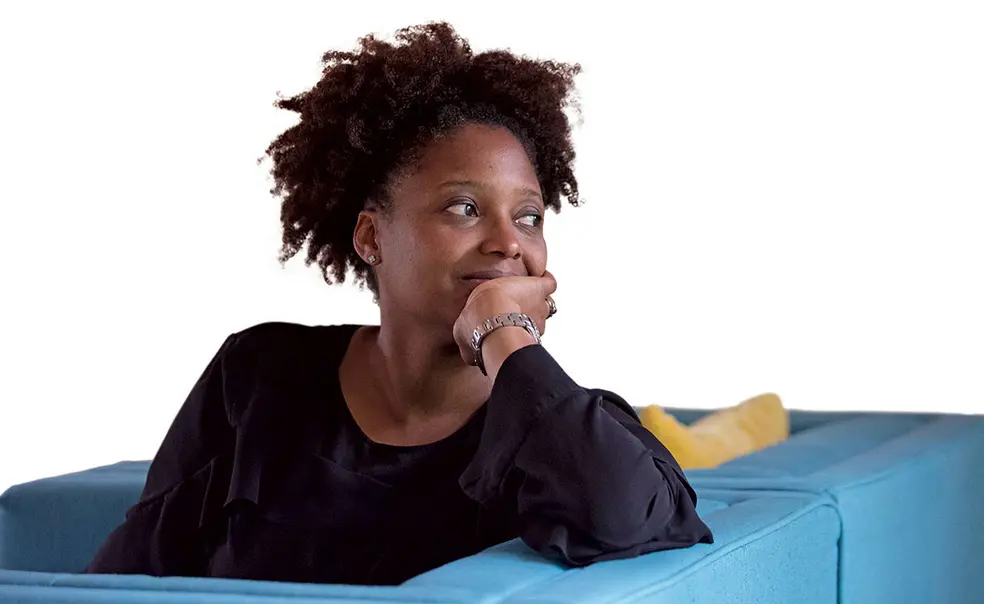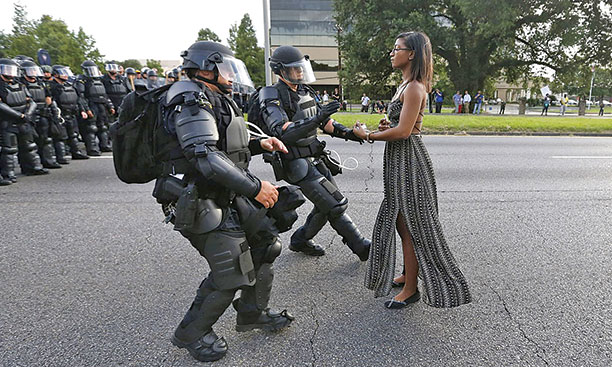In June, creative writing professor Tracy K. Smith was named the 22nd poet laureate by the Library of Congress, perhaps the highest honor for a poet in the United States. In 2012, she won the Pulitzer Prize in poetry for her collection Life on Mars. Smith took a moment to discuss poetry and her latest honor with PAW.
Plans for the role I’d like to host a number of poetry events in rural communities in the U.S. — places where literary festivals and major reading series don’t tend to go. I am eager for the conversations that might take shape about poems and about life.
Approach to teaching We look at the craft-based choices that writers have made, and talk about the effects [of] those choices. We are thinking, specifically, about images, formal devices, the music of language, associative leaps and shifts. We also think about how the thematic material other writers explore might embolden students to look differently and more deeply at their own experience of the world around them.
Why poetry is important Poetry allows us to break from the constant onslaught of noisy and largely repetitive input with which we are barraged throughout the day ... . Poetry is quiet, private, meditative, and rather than summing things up in pat and predictable ways, it surprises and deepens our sense of the ordinary. Poetry tells us that the world is full of wonder, revelation, consolation, and meaning. It reminds us that our inner lives deserve time, space, and attention.
Tracy K. Smith’s poem “Unrest in Baton Rouge” was written in response to the photograph above by the same name. Here, Ieshia Evans offers her hands for arrest as she protests outside the Baton Rouge, La., police department after the death of Alton Sterling in July 2016. Sterling, 37, had been shot multiple times at close range by a police officer. The shooting was captured on video and widely shared on the internet.
UNREST IN BATON ROUGE
after the photo by Jonathan Bachman
Our bodies run with ink dark blood.
Blood pools in the pavement’s seams.
Is it strange to say love is a language
Few practice, but all, or near all speak?
Even the men in black armor, the ones
Jangling handcuffs and keys, what else
Are they so buffered against, if not love’s blade
Sizing up the heart’s familiar meat?
We watch and grieve. We sleep, stir, eat.
Love: the heart sliced open, gutted, clean.
Love: naked almost in the everlasting street,
Skirt lifted by a different kind of breeze.
Poem © Tracy K. Smith, commissioned by Studio 360, reprinted with permission
Interview conducted and condensed by Eveline Chao ’02













1 Response
Jed Davis ’60
8 Years AgoEchoes of Tianenman Square
Echoes of Tianenman Square. A wonderful poem about a powerful photo of an iconic moment.